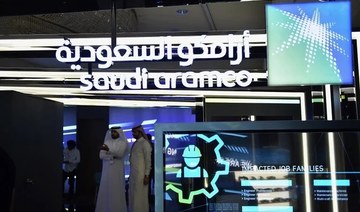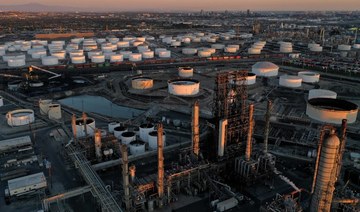LONDON/FRANKFURT: To observers of the secretive Swiss watch industry, its quiet, seemingly passive response to Apple Inc.'s plan to attack their centuries-old business could be mistaken for submission before an overwhelming adversary.
But luxury and fashion groups Richemont, LVMH, Swatch Group and Guess Inc. have been busy in the past year tinkering with smartwatches of their own, while aiming to preserve their products' more timeless appeal.
When Apple Watch was first announced last September, some experts dismissed such devices as appealing to a different class of customer - those who prize technology over prestige.
Now analysts and industry executives are starting to think that maybe the Apple Watch juggernaut will stoke sales of luxury timepieces among younger consumers used to telling the time with their phones, rather than on their wrists.
"Apple has the potential to make the watch cool again," said CCS Insight mobile analyst Ben Wood, a confessed wearable gadget freak. "I think the Swiss watch industry are going to be absolutely delighted."
Swatch — which has dabbled with smartwatch experiments for more than a decade and already makes components for fitness band wearable devices, has told Swiss newspapers it is gearing up to offer smartwatches of its own in the next few months.
"Apple is not the only company which is about to toss a smartwatch on the market," Nick Hayek, chief executive of Swatch, the world's largest watchmaking group, told SonntagsBlick in January. "This is not a threat but a huge opportunity for us and the Swiss watch industry."
On Monday, Apple revealed that its line-up of watches will go on sale in April. The entry-level Apple Watch Sport will start at $349, the standard version at $549 and the high-end "Edition" watch at $10,000.
The upcoming Swatch Smartwatch will include a chip that allows users to make contactless payments with a swipe of the wrist. It will use long-lasting batteries and work with both Apple and Google-based phones, according to news reports.
While the Apple Watch has drawn rave reviews for many of its features, its limited battery life of no more than 18 hours before re-charging is considered a big drawback.
LUXURY OF TIME
The threat of the smartwatch may also be limited due to its short shelf life as a hi-tech, frequently upgraded product.
An iPhone tends to lose half its value within the first year after it is introduced, while Rolex's flagship Submariner model has risen in value, analysts at Berenberg Bank noted in a recent report.
Montblanc, owned by Richemont, announced in January the launch of the TimeWalker Urban Speed e-strap watch, which combines a traditional mechanical watch with an interchangeable strap containing a Bluetooth connected device.
That offers "the best of both worlds", according to Berenberg's luxury goods analyst, Bassel Choughari. He said this is less risky than the strategy of LVMH's Tag Heuer, which has partnered with an as-yet-undisclosed US tech company to produce a watch outside Switzerland.
"It creates a bit of a grey area between Swiss-made and probably made-in-China products, so that could be a bit difficult to manage over time," Choughari said of the danger to brands.
Guess Inc. has also announced plans to launch a smartwatch line called Guess Connect later this year.
The new models, which come in sporty and jewel-encrusted versions, will link wirelessly to a user's nearby Apple or Google Android smartphone. Guess says these will be compatible with thousands of existing mobile phone apps and can be controlled from the watch using voice activated commands.
Fossil Group, another US-based fashion group, has toyed with smartwatches since 2003. A year ago, it said it would produce a smartwatch based on Google's Android Wear software, and in September, it said it had partnered with chipmaker Intel Corp.
It too early to know whether the Apple Watch, whose price tags run as high as $17,000 for its yellow or rose gold models, will steal share from the Swiss industry, which sells about 30 million watches a year.
The threat that Apple will cannibalize existing watch demand is most acute for Swatch, analysts say, because it has the highest proportion of products selling for a few hundred dollars, instead of several thousands as high-end names do.
If Apple sells 20 million watches in the first year, as some analysts estimate, and all of those purchases divert buyers from other watch brands, Swatch could suffer a 6 percent hit to annual revenue, according to a calculation by Barclays analysts.
Watch connoisseur Steve Baktidy says he is interested in the Apple Watch but only as a tech gadget to play with. But he also welcomed efforts by luxury makers to introduce more tech features of their own.
"Absolutely I'll buy one (from Apple) but it's not going to replace my everyday watch," said Baktidy, owner of two auto body repair shops in New York and two dozen watches by luxury brands including Patek Philippe, Audemars Piguet, Breitling and Omega.
Swiss firms gear up with smartwatches of their own
Swiss firms gear up with smartwatches of their own
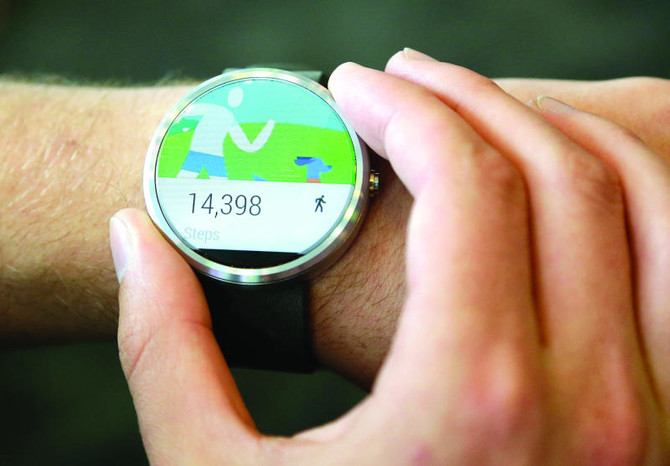
Oil Updates – prices climb after Israel strikes Gaza, truce talks continue
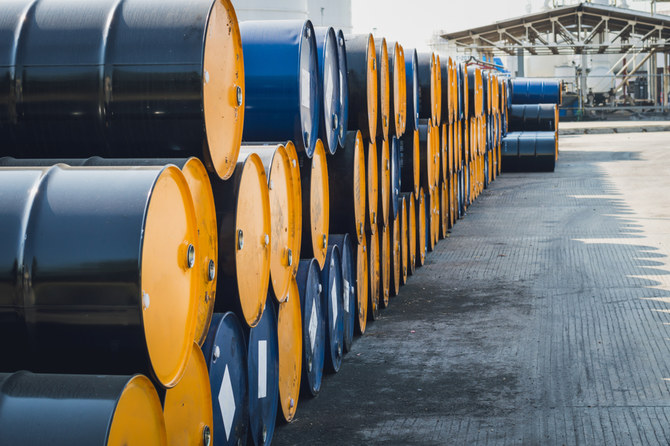
SINGAPORE: Oil prices edged higher on Tuesday after Israel struck Rafah in Gaza, while negotiations for a ceasefire with Hamas continued without resolution, according to Reuters.
Brent crude futures were up 9 cents, or 0.11 percent, at $83.42 per barrel at 9:35 a.m. Saudi time, while US West Texas Intermediate crude futures rose 7 cents, or 0.09 percent, to $78.55 a barrel.
“Oil prices opened up this morning, with some roadblocks in the ceasefire talks between Israel and Hamas leading market participants to price for geopolitical tensions to potentially drag for longer,” said Yeap Jun Rong, market strategist at IG.
Market participants will be looking ahead to upcoming US crude inventories data releases, Yeap added.
US crude oil and product stockpiles were expected to have fallen last week, a preliminary Reuters poll showed on Monday. The crude inventories could have on average fallen by about 1.2 million barrels in the week to May 3, based on analyst forecasts.
During the session, a stronger dollar capped gains in oil futures as it makes crude more expensive for traders holding other currencies. The dollar index, which measures the greenback against six major peers, was last up at 105.25.
Oil prices had settled higher on Monday, partially reversing last week’s declines. Both contracts had posted the steepest weekly losses in three months as the market focused on weak US jobs data and the possible timing of a Federal Reserve interest rate cut.
Palestinian militant group Hamas on Monday agreed to a Gaza ceasefire proposal from mediators, but Israel said the terms did not meet its demands and pressed ahead with strikes in Rafah while planning to continue negotiations on a deal.
Israeli forces struck Rafah on Gaza’s southern edge from the air and ground and ordered residents to leave parts of the city, which has been a refuge for more than 1 million displaced Palestinians.
The absence of a settlement between the parties in the now seven-month long conflict has supported oil prices, as investors worry regional escalation of the war will disrupt Middle Eastern crude supplies.
Saudi Arabia’s move to raise the official selling prices for its crude sold to Asia, Northwest Europe and the Mediterranean in June also supported prices, signalling expectations of strong demand this summer.
The world’s top exporter hiked its flagship Arab Light crude oil price to Asia to $2.90 a barrel above the Oman/Dubai average in June, the highest since January and at the upper end of traders’ expectations in a Reuters survey.
Saudi Aramco’s net profit hits $27.27bn in Q1 2024
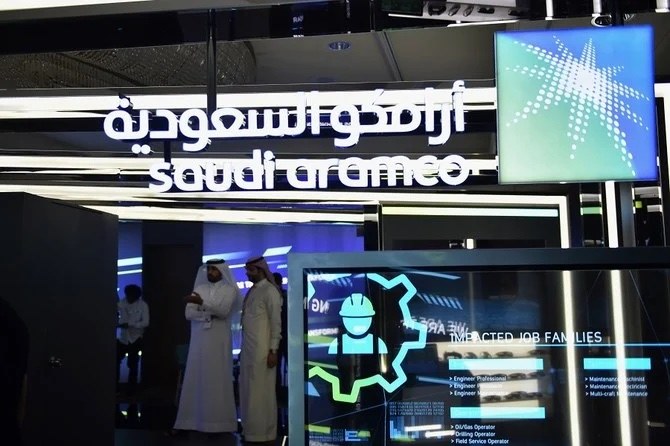
RIYADH: Energy giant Saudi Aramco reported a net profit of $27.27 billion in the first three months of this year, marking a 2.04 percent increase compared to the previous quarter.
According to the company’s statement, the state-owned oil firm’s total revenue for the first quarter stood at $107.21 billion, with the total operating income for the period reaching $58.88 billion.
Amin H Nasser, president and CEO of Saudi Aramco, said: “Our first quarter performance reflects the resilience and strength of Aramco, reinforcing our position as a leading supplier of energy to economies, to industries and to people worldwide.”
However, when compared with the first quarter of the previous year, the net profit of the Tadawul-listed firm declined by 14.44 percent by the end of March 2024.
Despite lower net income, Aramco declared a base dividend of $20.3 billion for the first quarter and anticipates distributing its fourth performance-linked dividend of $10.8 billion in the second quarter.
PIF’s Alat unveils electrification, AI infrastructure business units

RIYADH: Alat, a flagship company of the Public Investment Fund, unveiled two business units in electrification and AI infrastructure, to establish Saudi Arabia as a premier manufacturing hub globally.
The company unveiled its plans during the Milken Institute Conference held in Los Angeles.
According to a press release, the move comes as part of the PIF company’s strategic vision to spearhead a paradigm shift in industry sustainability while propelling Saudi Arabia on the global stage.
Alat Global CEO Amit Midha said: “I am pleased to announce these two exciting new divisions as they will make a significant contribution to Alat’s overall strategic goal of developing an advanced, sustainable future for the industry.”
The electrification arm will fortify grid technology, catering to the burgeoning demand for electricity driven by exponential growth in renewable energy sources like solar, wind, and hydrogen.
By harnessing Saudi Arabia’s solar energy and other clean resources, the firm seeks to manufacture innovative solutions that will catalyze the global energy transition and drive decarbonization in industry.
The electrification unit will specifically focus on enhancing transmission and distribution technologies, facilitating the integration of renewable energy into existing grids, and pioneering advancements in gas and hydrogen generation and compression technologies.
On the other front, the AI Infrastructure business unit will address the escalating global demand for AI capabilities across industries.
This entails the development of cutting-edge technologies encompassing network and communications equipment, servers, data center networking, storage, industrial edge servers, and Industry 4.0 computing.
“The global electrification market size reached $73.64 billion in 2022 and it is expected to hit around $172.9 billion by 2032, growing at a CAGR of 8.91 percent between 2023 and 2032,” the press release added.
The global AI Infrastructure market is set to hit $460.5 billion by 2033, with a robust 28.3 percent compound annual growth rate, driven by widespread adoption across industries for innovation, decision-making enhancement, and task automation.
As a gold sponsor at the Milken Institute Conference, the firm now has nine business units focused on sustainable technology manufacturing.
“Alat will invest $100 billion by 2030 across these business units to develop key partnerships and build advanced manufacturing capabilities in Saudi Arabia to bring jobs and economic diversification to the Kingdom,” the press release said.
Saudi Arabia’s Qiddiya to build region’s largest water theme park

- Aquarabia will also feature the first underwater adventure trip with diving vehicles
RIYADH: Saudi Arabia Qiddiya Investment Co. will construct the region’s largest water theme park as a cornerstone of its Six Flags Qiddiya City venture it was announced on Monday.
To be named Aquarabia, Qiddiya hopes to draw visitors from around the globe with 22 attractions and water experiences suitable for all family members, as well as some “world-first” attractions, Saudi Press Agency reported.
These attractions include the world’s first double water loop, the tallest water coaster with the highest jump, the longest and highest water racing track, and the tallest water slide.
Aquarabia will also feature the first underwater adventure trip with diving vehicles, catering to adventure enthusiasts with water sports areas designated for rafting, kayaking, canoeing, free solo climbing, and cliff jumping.
Additionally, the park will introduce the first surfing pool in the Kingdom, incorporating immersive design elements themed around ancient desert water springs and Qiddiya’s wildlife.
With sustainability in mind, Aquarabia will implement advanced systems capable of reducing water waste by up to 90 percent and decreasing energy consumption. As part of the Six Flags Qiddiya project, the venture, the first Six Flags of its kind outside North America, aims to recycle operational waste, diverting over 80 percent from landfill.
Scheduled to open in 2025, both Aquarabia and Six Flags Qiddiya City are situated within Qiddiya City, forming a fully walkable neighborhood offering a diverse array of activities, accommodations, dining options, and relaxation spots.
Abdullah Al-Dawood, managing director of Qiddiya Investment Co., hailed the announcement as a significant milestone for Qiddiya and the entertainment, tourism, and sports sectors in the Kingdom.
He emphasized that the projects will cater to diverse entertainment needs while contributing to economic diversification and job creation in the tourism sector.
The project also aims to meet the growing local demand for immersive entertainment experiences, particularly in water activities, aligning with the goals of Saudi Arabia’s Vision 2030 to enhance local tourism and employment opportunities.
The unveiling of Aquarabia follows the announcement of several other entertainment, sports, and cultural attractions in Qiddiya, including the world’s first multi-use gaming and electronic sports area, the multi-sport Prince Mohammed bin Salman Stadium and the Dragon Ball amusement park.
Saudi Arabia ascends as key destination for global talent: BCG report

RIYADH: Saudi Arabia has emerged as a key player in attracting global talent amid ongoing geopolitical shifts and financial uncertainty, moving up two spots on the list of preferred countries for workforce mobility.
The “Decoding Global Talent 2024” report by Boston Consulting Group highlights Saudi Arabia’s rise to the 26th most preferred country, underscoring the success of the Kingdom’s strategic initiatives to position itself as a global hub for professionals.
This fourth edition of the study draws insights from over 150,000 professionals across 188 nations, tracking global talent trends since 2014.
Riyadh’s rise to the 54th rank globally underscores its emergence as a hub of opportunity and progress in the eyes of global talent.
Christopher Daniel, managing director and senior partner at BCG, said: “As the global talent shortage becomes an increasingly pressing challenge for the world's foremost economies, Saudi Arabia is emerging as a pivotal player in narrowing this gap.”
He added: “With a significant proportion of respondents citing the quality of job opportunities, the attractive income, tax, and cost of living, as well as the assurance of safety, stability, and security as key reasons for choosing the Kingdom, it’s evident that Saudi Arabia’s strategic investments in its labor market are bearing fruit.”
Daniel noted that the Kingdom is leveraging labor migration to enhance its workforce, offering a secure and hospitable environment that caters to the diverse needs of international professionals.
“By fostering a job market that is attuned to the evolving aspirations of global talent while prioritizing their well-being, Saudi Arabia is positioning itself as a compelling destination for those seeking growth and fulfillment in their careers,” he said.
Furthermore, the report highlights that younger generations and individuals from rapidly expanding populations are particularly attracted to global mobility, pursuing diverse experiences and opportunities for professional growth.
With 23 percent of global professionals actively pursuing international positions and 63 percent remaining receptive, Saudi Arabia is well-positioned to capitalize on this trend.
The Kingdom offers an enriching environment for a globally oriented workforce to excel and progress in their careers, presenting an enticing option for individuals seeking both personal and professional advancement in an ever more interconnected global landscape.


